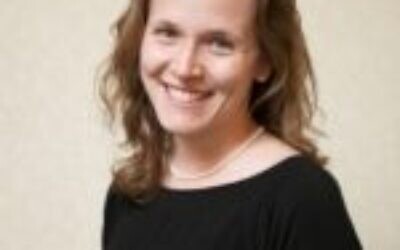Increasingly, People Live Well with Cancer
June is Cancer Survivor Month.

Although it may feel like it at the time, receiving a cancer diagnosis is no longer considered an automatic death sentence. The American Cancer Society reports that although cancer is still the second most common cause of death in the U.S., after heart disease, annual statistics show the risk of dying from cancer in the country has decreased over the past 28 years. In fact, the cancer death rate for men and women combined fell 32 percent from its peak in 1991 to 2019, the most recent year for which data is available.
According to the ACS, some of the decrease “appears to be related to an increase in the percentage of people with lung cancer who are living longer after diagnosis, partly because more people are being diagnosed at an early stage of the disease.”
Last year, it was expected that there would be 1.9 million new cancer cases and 609,360 deaths from cancer, or about 1,670 deaths a day.
Thus, millions of Americans have continued to live well with cancer, now considered a chronic disease by many medical professionals. Still, each individual who has been diagnosed, perhaps treated but continues to live with that diagnosis, has to choose how they will live.
And there are choices. Well-meaning friends and relatives will offer advice about one’s diet, natural supplements, even obtaining parking places at a hospital for “inevitable” emergencies, but oncology counselors, psychiatrists, and physicians agree that it is the patient who should make the decisions.

One of those decisions may be as simple as just thanking a person who offers their advice, and immediately ignoring it. “Each person must make their own decisions on what they should eat or do,” states Dr. Wendy Baer, director of psychiatric oncology at Winship Cancer Institute of Emory University.
Cancer journeys are not easy, not for the patient, their loved ones nor their friends. “It’s hard to expect people to stay positive through the journey. For some people, it’s a fight, but it’s happening in your body. We want to stop the cells from dividing too fast,” Baer said.
There’s a language that has emerged around experiencing a cancer diagnosis, she added: “a cancer fighting spirit.” She said the chronic condition of cancer can be managed, but she said that the mindset of wanting to “fix it” can be shifted to thinking about how to care for one’s body.
But it’s not only one’s body that is a concern, notes Adina Fleischmann, chief services officer at Sharsheret, the national Jewish breast cancer and ovarian cancer organization. “When someone receives a cancer diagnosis, they often assemble a support toolbox” that can include family members, work colleagues and one’s community.
One of those tools can be one’s relationship with religion or spirituality, which can change over time. “Many aspects of Judaism can play a role throughout someone’s experience with cancer, including the value of community,” Fleischmann said.
Some people incorporate Jewish holidays and prayers as part of their tools for coping with cancer.
Fleischmann, who has worked at Sharsheret since 2009, pointed to one program that has helped some Jewish cancer survivors. “We host Pink and Teal challah bakes across the country, providing both education and support opportunities as women connect with their community,” she said.
But one’s spiritual relationship with G-d can also be valuable. “Women call us with spiritual questions such as ‘why me?’ or ‘why now?’ Spiritual questions vary and can change over time for some.”
Founded in 2001, Sharsheret provides emotional support, mental health counseling, education, and financial subsidies. It cultivates community by bringing together women, families, caregivers, healthcare professionals and others through national webinars that offer expert medical information, healthy living opportunities, and Jewish spirituality connection for thousands of Jewish women.
Sharsheret supports not only women with cancer, however, but the whole family.
Fleischmann notes that the BRCA genetic mutation, found in one in every 40 Ashkenazi Jews – 10 times its rate in the general population and which increases the risk of several cancers including breast and ovarian – impacts both women and men.
According to Baer, “all people living with cancer can benefit from emotional support.” In addition, “social connectedness is important for all of us. It may shift over time as to who can be there for us.”
Her advice for living well with cancer includes two levels of three steps each. In the first level, she recommends good quality sleep, regular safe movement, and attention to a healthy diet. In the second level, she recommends finding an oncology team you can trust, support people who “get it,” and “working on your mindset: how this journey is part of your life but not all of your life. We figure out a way to live with cancer. It doesn’t go away like poison ivy.”
Baer emphasizes that people “are stronger than we think we are.”
In fact, Fleischmann suggests that people diagnosed with cancer rely on their greatest strengths that existed before the diagnosis. “What are the things that have gotten you through [bad times]? Your cancer diagnosis is likely not the first challenge in your life. Apply your strengths here, too.”
Another important aspect of living well with cancer, said Fleischmann, is understanding that one can “still plan for the future. We speak with women about creating a balance between living in the present and still planning for the future. Make plans. You may need to shift or adjust them. But you should still look ahead.”



comments